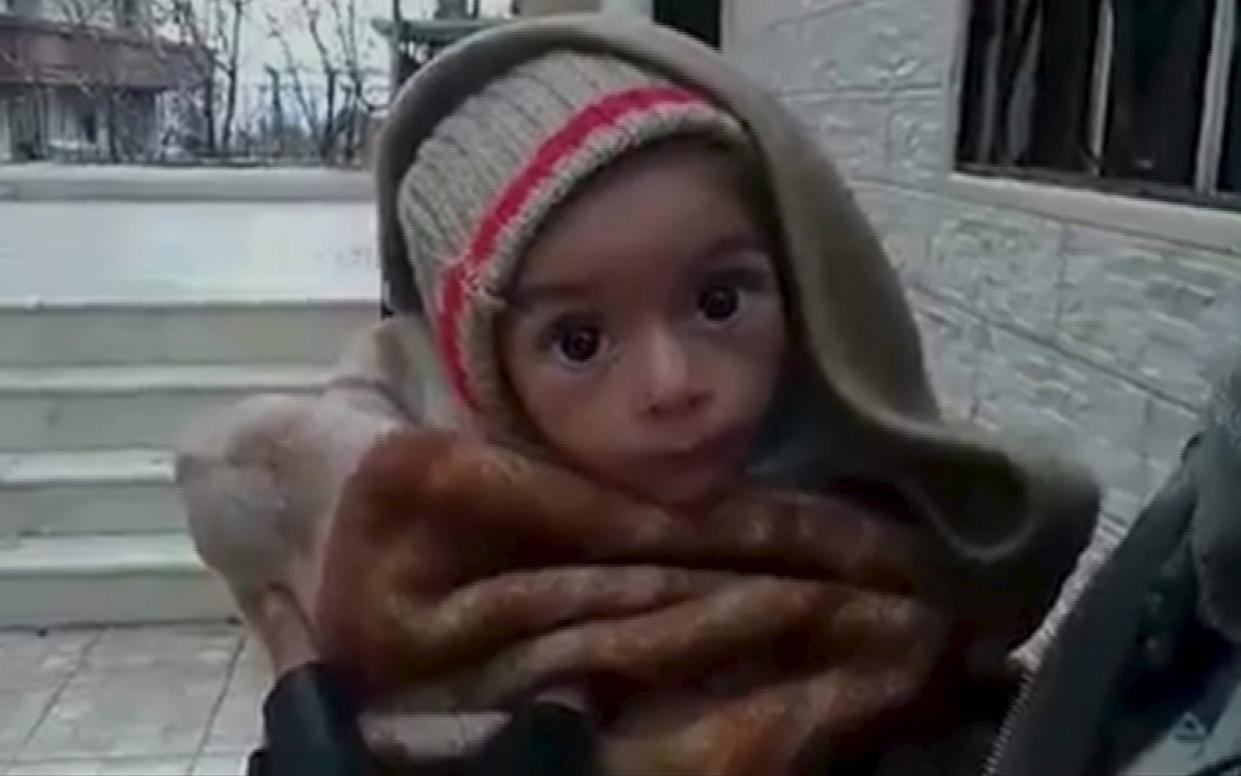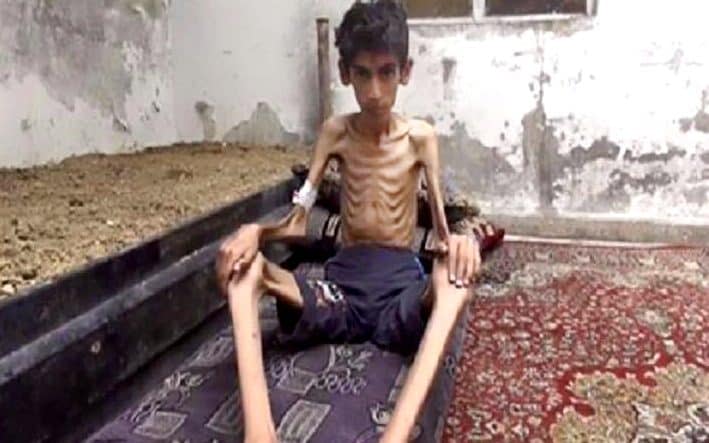Evacuation deal reached for four besieged Syrian towns where civilians are trapped in 'catastrophic' conditions

The residents of four Syrian towns which have been under crippling siege for more than two years are to be evacuated under an exchange deal reached between warring sides of the conflict.
Civilians living in Zabadani and Madaya, two towns near Damascus besieged by government forces, will leave their homes in return for the evacuation of Fuaa and Kafraya, two mainly Shia towns in the northwest besieged by the rebels.
The deal was brokered by rebel supporter Qatar and government ally Iran, according to Rami Abdulrahman, the director of UK-based Syrian Observatory of Human Rights.
The evacuations will not begin until April 4, but as a goodwill gesture both sides have reportedly agreed to a temporary ceasefire.

An estimated 70,000 people have been living under intense siege in the four areas, where little food or aid has been allowed in since 2015.
The United Nations has described the situation as "catastrophic", with civilians "trapped in a daily cycle of daily violence and deprivation".
Dozens are estimated to have died from thirst and starvation.
Aid workers from the International Committee of the Red Cross (ICRC), which managed to gain access to the towns on March 15 after four months, said the conditions were dire.
“Words cannot describe the suffering we witnessed. In Madaya, kids have barely left their homes in months. They spend most of their time in underground shelters, scared for lives,” a spokesman said.
“People have burnt everything they have – mattresses, curtains, clothes – for warmth. Now there’s nothing left to burn.
#HappeningNow :we are entering #Madaya, #Zabadani, #Foaa & #Kafrya with @SYRedCrescent & @UN delivering much-needed food & medical items. pic.twitter.com/IRVpJMfzlX
— ICRC Syria (@ICRC_sy) March 14, 2017
“Fuel is non-existent. Families haven’t been able to cook for months. Instead they soak rice or beans in water, and that's their meal.”
The comparable-sized areas are part of a deal referred to as the “four towns agreement”, which was reached in 2015.
Relief convoys to the towns have always simultaneous and equal, with the same number of trucks entering at the same time.
Medical evacuations would not take place unless a similar evacuation took place from the other side.
Fuaa and Kafraya are strategically important to the rebels as they lie within Idlib province, an opposition stronghold.
While Zabadani and Madaya are both close to the Lebanese border, which is controlled by regime ally Hizbollah. Control over the area guarantees an uninterrupted route for its fighters between Lebanon and Syria.
Multiple attempts at ending the sieges have so far failed.
Rebels described the deal on Wednesday as “not a happy ending”, saying it amounted to a forced evacuation.
The opposition considers it a deliberate policy of demographic change to forcibly displace President Bashar al-Assad's opponents who are mostly Sunni away from the main cities of western Syria, where he has shored up his rule in the six-year-long conflict.
Salem al-Meslet, spokesman for the High Negotiations Committee (HNC), told the Telegraph that forced displacement amounted to a "war crime".
"The technique of forcing surrender deals through besiegement tactics is inhumane. After months of no humanitarian aid and intense bombardments, the civilians of the four towns will now be forced onto buses and leave their homes," he said, speaking from Geneva where peace talks are ongoing.
"We have such deep concern for these people and condemn any forced movement of civilians under duress, after years of besiegement."

 Yahoo News
Yahoo News 
